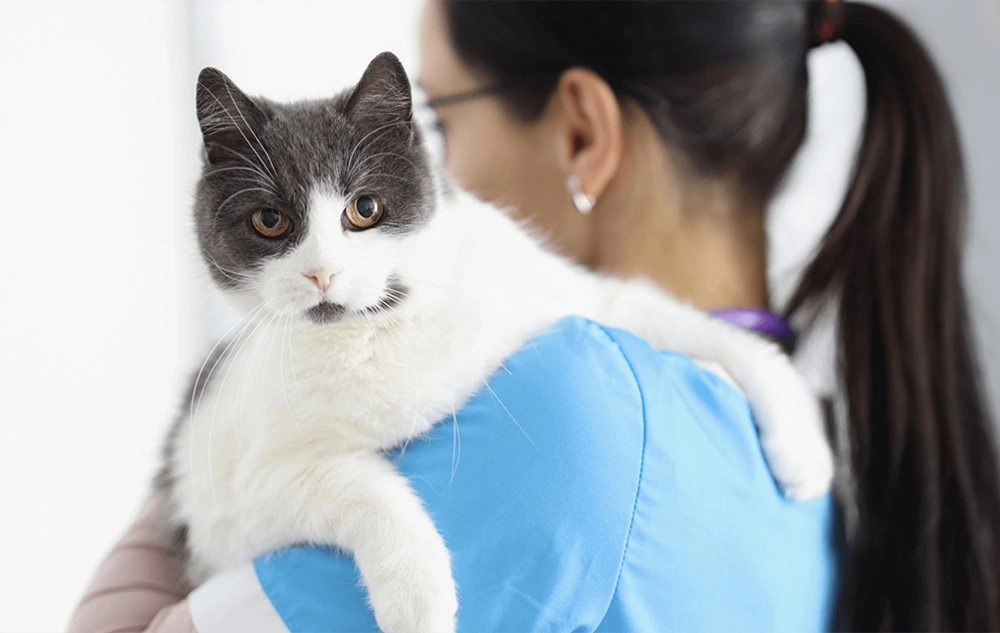
Keeping Your Pet Calm for Their Vet Appointment
April 17, 2022What to know about heartworm disease.
Heartworm disease is a serious disease that affects both cats and dogs. It is caused by foot-long worms that settle into the heart, blood vessels, and lungs of an affected pet. These types of worms can cause heart failure and lung disease and can be potentially deadly if not caught in time. Pets that survive heartworm disease often have a lower quality of life because of the damage to their organs. As April is Heartworm Awareness Month, it is important to educate yourself on what heartworm disease is and why heartworm prevention is vital to your pet’s wellbeing.
What is heartworm?
Heartworm is a type of roundworm known as dirofilariasis (or heartworm disease). The parasite that causes the disease is known as Dirofilaria immitis. It takes 6 – 7 months for larvae to mature to adulthood where it begins the reproduction cycle. A single adult heartworm can reach up to 12 inches in length and live up to seven years.
How do pets get heartworms?
Mosquitoes are the most common carrier of heartworm. A female mosquito picks up larvae in the bloodstream of an infected animal, then transmits the larvae into the next animal it bites. Dogs are a perfect host for heartworms which is why they are most affected by the parasite, but cats can also become hosts.
Heartworm larvae take about 6 months to develop into adult worms that settle into the organs of the animal. Once the worms take hold, the adults can live and produce larvae for 5-7 years in dogs and 2-3 years in cats.
Signs of heartworm in dogs
During the initial stages of the infection, signs of heartworm are almost impossible to detect in dogs. Your dog will act normal until the larvae have matured a few months after infection, however, they are causing damage to your pet’s health even before symptoms occur. Signs of infection include:
- Coughing
- Easily fatigued
- Lethargic
- Lack of interest in play or exercise
- Decreased appetite
- Weight loss
As the infection advances, your dog may develop heart failure and have a swollen belly from the excess fluid that the heart cannot pump out. A dog that has a large number of heartworms in its organs can exhibit Caval Syndrome which is caused by the heartworms suddenly blocking blood flow.




